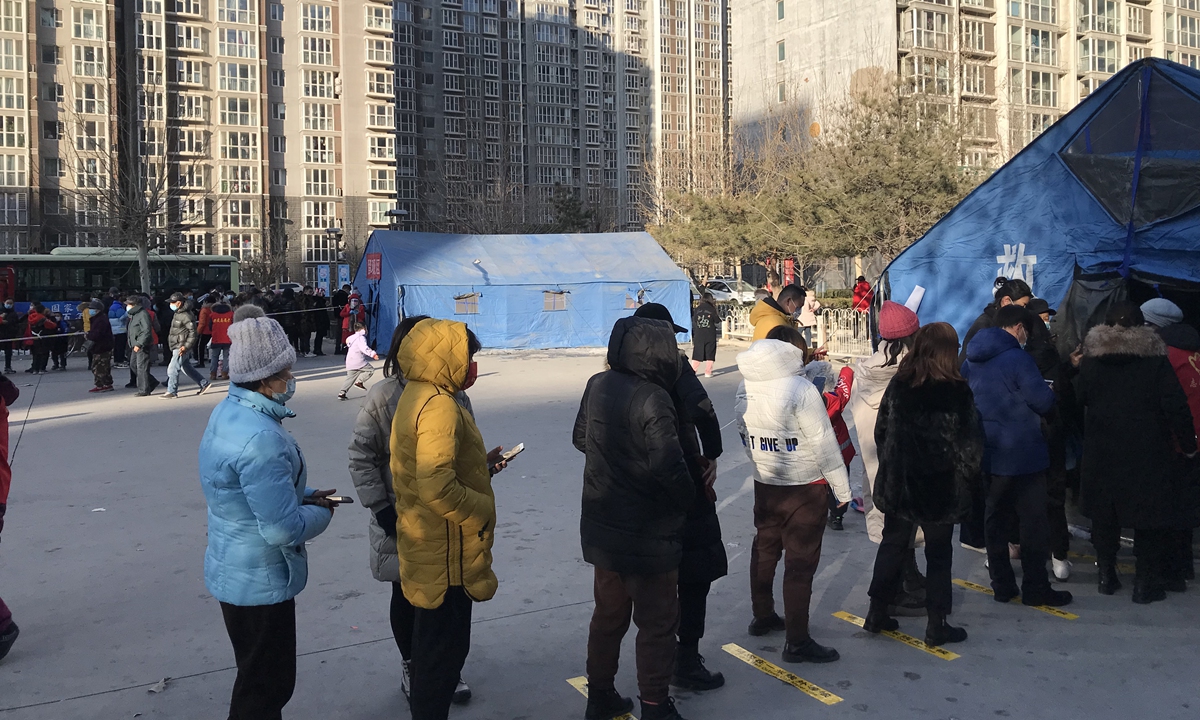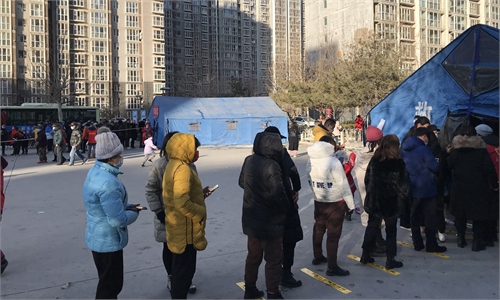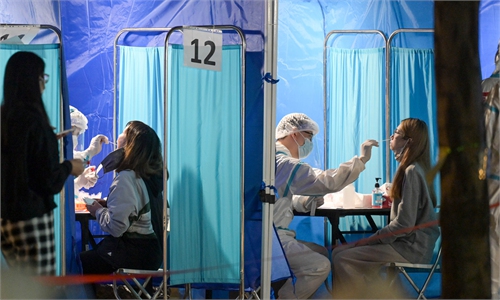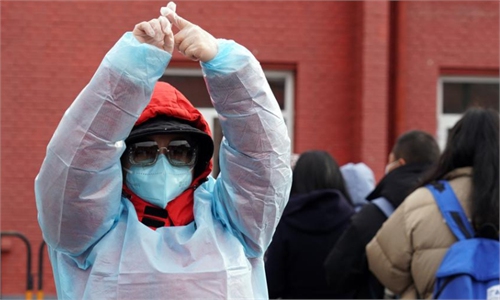Beijing's close neighbor locks down communities as city's Delta-related outbreak continues to rise

Residents line up to take nucleic acid test on January 26,2022,at Fuchengwuqi community in Yanjiao town, Sanhe, North China's Hebei Province.Sanhe reports one positive COVID-19 case on Wednesday. Photo: Hao Lei/GT
While Beijing reported eight more new COVID-19 infections who were all from already-controlled populations with the Delta strain, one more city - neighboring Sanhe in North China's Hebei Province - reported a case in relation to Beijing's outbreak.The patient worked in Beijing's Fengtai district and commuted between Sanhe and Beijing. This confirmation led the city to suspend all bus lines and close communities in seven regions on Wednesday morning. The city is conducting mass nucleic acid testing of local residents.
Seven towns, districts and streets in the city have been categorized as "controlled areas" or "prevention areas," including Yanjiao town, which is about 30 kilometers from Beijing's Central Business District. Yanjiao is home to hundreds of thousands of people who work in Beijing and commute between the two cities.
As of press time, domestic outbreaks in Beijing stood at a total of 75 positive cases - six with the Omicron variant and 69 with the Delta variant. They had spilled over to at least seven regions in four provinces, the Global Times found.
Experts said the fact that the daily new cases were from controlled populations indicates that the anti-epidemic measures of the Beijing municipal government have been precise and timely. The scale of the outbreak should be limited because most cases were related to the cold-chain industry.
From Tuesday afternoon to Wednesday afternoon, Beijing registered eight positive cases, all related to a viral transmission chain with the Delta strain, which brought the total cases in the Delta-related outbreak since January 15 to 69 as of press time, Pang Xinghuo, deputy director of Beijing Center for Disease Prevention and Control, said at Wednesday's press conference.
For the Omicron-related outbreak in Beijing, Pang said that no fresh cases on this transmission chain were reported for three days and the related cases reported in Beijing were six in total since January 15.
Details of the new cases reported by Pang showed that seven out of the eight cases were from Fengtai district and one from Xicheng district. Five of the people worked at a cold-chain storage facility in Fengtai.
The average age of patients detected in this round of outbreaks, characterized by the Omicron and Delta variants, is 40 years old.
The eldest patient is 79 and the youngest is five months old, Pang said. Patients with the Omicron strain had similar symptoms as patients infected with Delta, but their symptoms were lighter than the latter.
Wang Guangfa, a respiratory expert at Peking University First Hospital, told the Global Times that it's a test for Beijing to withstand the outbreak prior to the Beijing Winter Olympics. So far, the risk of this round of outbreaks should be limited, as all cases were confined to the cold-chain industry.
As Beijing screens for more potential COVID-19 infections by rolling out mass testing in some districts, it has strengthened anti-epidemic measures by tightening entry restrictions to the Beijing Capital International Airport and suspending some bus lines.
On Wednesday morning, the health code system of Beijing experienced a temporary technical failure for about an hour, leaving Beijing residents unable to check their nucleic acid testing results.
As of press time, at least seven regions in four provinces - Hebei, Shandong, Shanxi and Liaoning - had reported cases linked to Beijing's outbreak.



